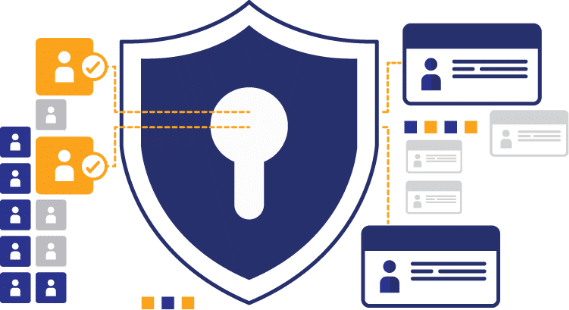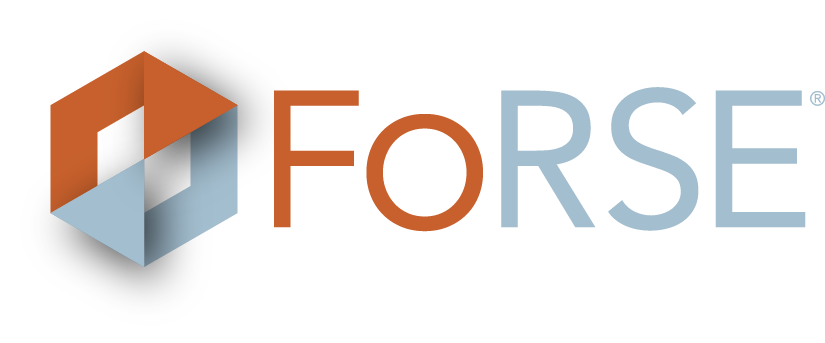Security Risk Assessments for EMR Systems
In today’s modern age of rapidly advancing technology, cybercrime and data breaches seem to frequently make mainstream news.
When it comes to protecting Electronic Medical Records (EMR) in the healthcare sector, cybersecurity and consistently performing the appropriate security risk assessments become more important than ever.
According to data from the Identity Theft Resource Center (ITRC), there were 11,762 recorded data breaches between January 2005 and May 2020, a number that’s expected to increase each year rapidly.
Furthermore, a report from IBM Security pointed out the staggering statistic that the average time to identify a data breach was 207 days, far too long to mount an appropriate and timely response against the attackers.
Sunwave Health has taken several security-minded steps to keep our EMR data safe and protect patient information.
The primary objective of our EMR system is to supply behavioral health providers and their teams with a reliable and secure platform upon which they can manage all patient care, documentation, medications, signatures, and group notes.
If EMRs such as patient records and treatment data are kept safe with the help of EHR developers, your organization stays compliant and can continue to give patients the absolute best chance of successful recovery.
How does Sunwave keep EMR data safe and secure?
The global cybersecurity education company Cybint recently noted that approximately 43% of cyberattacks target small businesses, not just large organizations.
At Sunwave Health, we’re acutely aware of the rising number of cyberattacks and have proactively taken measures to ensure our EMR is secure and well-protected. Our staff is trained and HIPAA-certified.
HIPAA Compliant Software
Security and privacy are our primary focus when it comes to Sunwave. We’ve ensured that every single module within our platform is HIPAA (Health Insurance Portability and Accountability Act of 1996) compliant.
HIPAA is a federal law that created national standards designed to protect the incidental disclosure of sensitive patient health information without their knowledge or consent.
It currently has two elements, including the HIPAA Privacy Rule and the HIPAA Security Rule.
To implement the requirements of HIPAA, the US Department of Health and Human Services (HHS) issued the HIPAA Privacy Rule to ensure patient data is properly secured and protected.
To further protect information covered by the privacy rule, the HIPAA Security Rule was created to protect all personally identifiable health information that a covered entity receives, creates, transmits, or maintains in electronic form.
Organizations that are covered under the HIPAA Privacy Rule include:
- Healthcare providers
- Health plans
- Healthcare clearinghouses
- Business associates
All electronic information under the HIPAA Security Rule is called “electronic protected health information” or ePHI.
To comply with the HIPAA Security Rule, covered entities must:
- Ensure the integrity, confidentiality, and availability of all ePHI
- Protect against disclosures or anticipated impermissible uses
- Detect and safeguard against any threats to the security of ePHI
- Certify workforce compliance
To comply with the HIPAA Security Rule, covered entities must:
We host our data in the cloud to ensure maximum reliability, redundancy, and security.
Two-Factor Authentication
The ease of use and setup of two-factor authentication (2FA) systems has made it an increasingly popular way of securing accounts and information online.
In the past, if you wanted to sign into one of your online accounts, all you had to do was enter your username and password.
With two-factor authentication, also known as multi-factor authentication, as soon as you correctly enter your username and password, you’re presented with one extra step – an additional 2FA code.
The key to successful 2FA security is the fact that:
1 The code is locally stored on your phone or a 2FA physical token you carry with you 2
The code changes every 30-60 seconds
Any accounts secured through two-factor authentication require the attacker to both know your username and password and simultaneously be in possession of your phone or 2FA token in the exact 30-60 second period before the code changes.
This “physical token” aspect and constantly changing codes make it tremendously difficult for hackers to breach your online accounts.
Sunwave Health has implemented two-factor authentication into the login process of all our online systems, ensuring that your account and EMR are fully protected.
Once you’ve set up 2FA on your Sunwave account, you’ll be able to enter your 2FA token after you’ve begun logging in with your username and password. This “extra layer of protection” ensures that only you will be able to login into your account and keeps intruders away from all of your organization’s EMR within the Sunwave platform.

Enhanced Privacy, Compliance, and Security

While being compliant with the HIPAA Security Rule and implementing Two-Factor Authentication have been critical in improving the security of Sunwave, the granular security controls available within the Sunwave EMR system help boost security at a more granular level.
With the controls present inside of the Sunwave EMR system, your team will be able to establish permissions and user roles as granularly as you’d like.
By limiting access to only those individuals that truly need access to the desired information, you ensure that nobody comes across ePHI they shouldn’t be viewing.
The Sunwave EMR system also offers detailed logging capabilities for every employee, allowing you to keep them accountable and ensure all of your patient’s data is fully protected.
The Security Risk Assessment Tool
To help providers like Sunwave Health keep their EMR systems secure, the Office of the National Coordinator for Health Information Technology (ONC) in tandem with the HHS Office for Civil Rights (OCR), developed a security risk assessment tool to allow healthcare providers to conduct a security risk assessment as required by the HIPAA Security Rule.
The security risk assessment tool helps businesses like Sunwave Health do the following:

Identify vulnerabilities and potential threats to ePHI – If there is any risk of theft or cyberattack due to vulnerabilities such as a weak EHR login system, the organization will be informed of these vulnerabilities before they can be exploited.

Review all devices involved with ePHI – The SRA Tool allows its users to review any electronic device that captures or stores electronic personal health information (ePHI) in any way. With the help of EHR developers, the security of every device can be verified.

Routinely assess overall security risks – Whether this risk assessment is performed on a yearly basis or whenever any major changes were made to the EMR system, having the SRA Tool available and easily accessible ensures that risk is examined routinely.

Provides assistance with HIPAA Security Rule requirements – To ensure compliance, the SRA Tool helps organizations implement all of the requirements set by the HIPAA Security Rule.
To ensure the safety of all patient and treatment data within the Sunwave Health EMR, security audits are routinely performed.



